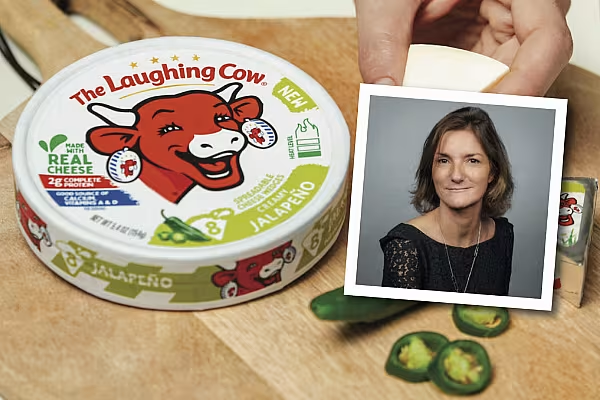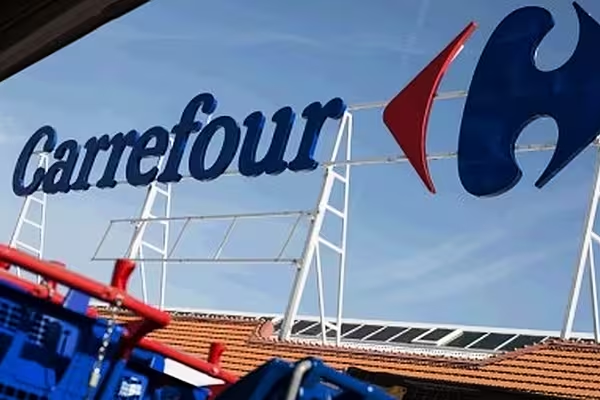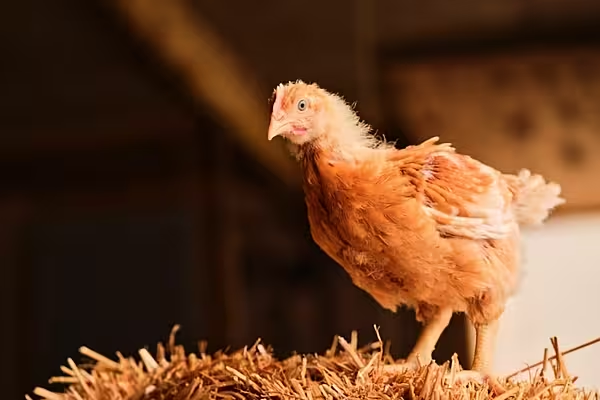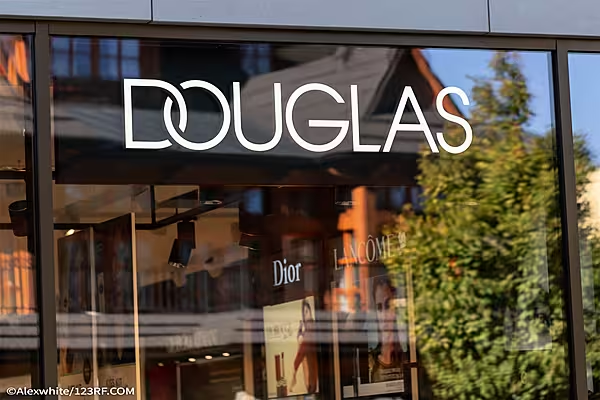Stephen Wynne-Jones talks to Cécile Beliot-Zind, CEO of Bel Group, about the company's vision to align health and business goals. This article first appeared in ESM’s July/August 2024 edition.
There are few dairy snacks as iconic as Babybel, the playful portion-sized cheese treat first launched by Bel Group in the late 1970s, and ever present in school lunchboxes in the years since.
It’s one of a host of products launched by the French firm – along with the Laughing Cow, Kiri, Babybel, Boursin, Nurishh, Pom’Potes and GoGo squeeZ (not to mention 30 local brands), which collectively generated sales of more than €3.64 billion in 2023 – that have sought to challenge conventions within the snacking segment.
As well as being an FMCG powerhouse, Bel Group – under the guidance of chief executive Cécile Beliot-Zind – is seeking to transform the food system to better serve global health and environmental concerns.
Its ‘For All, For Good’ mission encompasses a number of macro targets: to develop a new food model, capable of feeding ten billion people while respecting the planet; to encourage stakeholders to rethink ‘the value of food and its positive impact’, both now and into the future; and to double down on its plant-, fruit- and vegetable-based offerings while stepping up its decarbonisation objectives.
“The way we embrace sustainability at Bel Group is extremely holistic,” Beliot-Zind tells ESM. “We have to fight for changing the food system in a radical way because today, the system does not fit the world properly.”
Champion Of Change
Beliot-Zind has held the top job at Bel Group since May 2022, succeeding Antoine Fiévet, and in that time has positioned the business to be a champion of change within the food industry. The first woman to hold the top position at the firm (and only the second from outside the shareholder family), she joined Bel in 2019, as deputy managing director in charge of Strategy, Markets and Growth. She spent much of her previous career with Danone, in a variety of roles, as well as doing a three-year stint with Kraft Foods.
As she notes, when it comes to global consumption, the numbers speak for themselves: “Forty per cent [40%] of total calorie intake comes from snacking,” she says, while the current food system generates one third of global emissions.
To Bel Group – and to Beliot-Zind, in particular – food is more than a commercial product – it’s a human right – and, as such, encouraging and prompting behavioural change among consumers is another core aspiration for the group.
“Take cosmetics, for example,” she says. “I love cosmetics, but you can live without mascara, and you can still be beautiful. Food is not the same. We cannot continue to behave like food is the same as any other kind of product and any other kind of business because the consequences of what we do are much more important than that. If we consider that food is a human right, we have to deal with it in a different way.”
Changing the mindset around food fits in with Bel Group’s three-pronged approach to sustainability: first, ensure that regenerative agriculture can enhance soil health, capture carbon, and retain water more effectively; second, encourage a healthy, planet-focused diet, including fruit, vegetables and plant-based proteins; and, thirdly, increase efforts to reduce food waste at all levels of the supply chain, as well as in the home.
Such a transition isn’t achievable, of course, unless all actors in the supply chain are on board, and Bel Group has seen positive momentum in empowering its farmer-suppliers to adopt more sustainable practices.
“When you empower your farmers, they are more than happy to contribute,” as Beliot-Zind puts it.
Despite not owning its farms, the group has initiated changes by incentivising regenerative practices, facilitating a swift transition to sustainable methods. In just 18 months, all of the 800 farmers who supply Bel Group in France have adopted free pasture grazing and non-GMO cow feed, eliminating the use of deforestation-linked soy from their production methods.
“I think there has been a lot of preconceived ideas on what we can get, in terms of speed of transformation in the upstream,” Beliot-Zind explains, “and the reason why we are stuck in this idea is because we don’t want to have the conversation in the first place. So that’s why I keep saying that we need to transform the narrative.”
Challenging Misconceptions
Beliot-Zind also advocates for shattering a few long-held consumer myths, including the misconception that meat is an essential daily ingredient for protein.
“At the Olympic Games, you see a lot of athletes that have adopted a vegetarian diet, and their performance is better,” she says.
Rather than seek to bombard consumers with alarming facts about the damage that the meat industry is doing to the planet, she calls for a more reasoned approach that appeals to the benefits that they associate with food.
“When you give facts that are scary, it doesn’t work,” she says. “It’s important to convey personal benefit. Only a small percentage of people say that they would be ready to change their consumption behaviour for planetary reasons. The vast majority, however, would change their behaviour if they see an individual benefit – either a product is better for my health, it has a better taste proposition, or it’s consistent with what I’m used to.”
Sustainable Thinking
To Bel Group, sustainable choices should be both attractive and practical, with its ‘Sustainable Kitchen’ initiative – which promotes ways to reuse leftovers creatively – generating a positive response from consumers. Packaging plays a role here, too, with both the Laughing Cow and Babybel boasting portion-controlled packaging that reduces food waste, discourages overconsumption, and results in lower CO2 emissions, compared to bulk options, as illustrated by their life cycle assessments.
“When you look at a portion control box of The Laughing Cow and you compare it with the bulk proposition, in a plastic tub, you have 50% less CO2 impact on packaging and transportation in the portion proposition than in the bulk,” Beliot-Zind says. “This is for a very simple reason: the bulk option is in heavy plastic tubs, compared to thin aluminium foil and paper for the portion packs.”
While the rise of fragmented eating patterns and, in parallel, packaged food, snacks and beverages is a global phenomenon, Beliot-Zind suggests that this shouldn’t discourage firms from seeking to embed healthier consumption choices. Rather, it presents a significant opportunity to influence public health and tap into new profit-generating opportunities. Collaboration, particularly between retailers and suppliers, has an important role to play, she adds.
“Food is cultural, but there are some trends that are absolutely global,” she says, “and that’s snacking. Coca-Cola is global, Mars is global, so it comes back to us. What do we do to help every kid on Earth to adopt the right habits on snacking?”
She points to the group’s own GoGo squeeZ and Babybel products as examples of how healthy, nutritious products can be playful and resonate with children, traditionally the hardest-to-please consumers.
“Why do kids love Babybel? Because of the wax – that experience of ‘unwrapping’ it,” she says, “so it is possible to create the same experience and the same playfulness from a healthier snacking product.”
The company recently introduced a new plant-based Babybel variant, as part of its efforts to reduce its carbon footprint yet further.
Balancing The Pillars
Ultimately, for Bel Group, balancing financial performance with sustainability isn’t a nice-to-have – it’s a business imperative. While making more sustainable choices on a company level – reducing the carbon footprint of one of its factories, for example – requires capital, it similarly results in greater efficiencies and profit gains.
“With everything we do at Bel, we say that the two pillars are equally important – financial performance and sustainability performance – and we drive both,” says Beliot-Zind. “Both are possible. You can deliver on both.”














